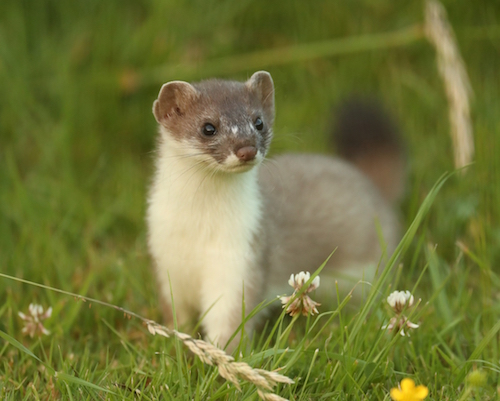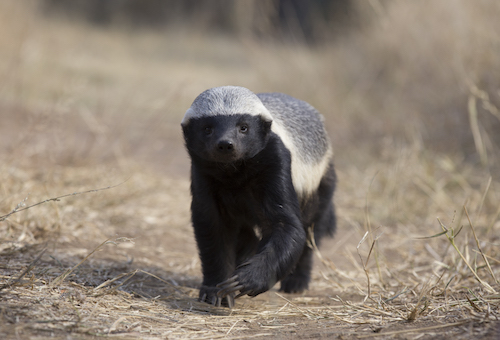Communiqué
Do These Critters Deserve a Bad Reputation? NATURE: “The Mighty Weasel” Wednesday, February 24 at 8
< < Back toNature: The Mighty Weasel
Wednesday, February 24 at 8 p.m. on WOUB, pbs.org/nature and the PBS Video app
Discover the truth about the infamous weasel family, often portrayed as villains and associated with unsavory behavior. We “badger” people, “ferret” out the enemy and “weasel” out of things. Do these critters deserve their bad reputation? To find out, follow the adventures of first-time weasel mom Bandita, raising her kits in a unique garden, and meet tiny but mighty orphan weasel Twiz on her journey back to the wild. New, ground-breaking science uncovers the problem-solving abilities of the honey badger, the secrets behind the ferret’s legendary flexibility and the wolverine’s remarkable sense of smell. Step into the world of weasels as Nature reveals their real lives.

Noteworthy Facts:
- The weasel family, also known as mustelids, is one of the most varied animal groups in the world, with about 60 different species found from the Arctic to the tropics.
- Wolverines are the largest of all land mustelids. Found across the Arctic, wolverines are built to survive in the cold. Their fur is thick and frost-proof and their large padded feet act as snowshoes when traveling up to 20 miles a day across the ice. A wolverine’s supersensitive nose is most crucial to surviving these extreme environments, as it allows them to sniff out prey from deep under the snow.
- Ferrets have a unique body shape that allow them to spend 90 percent of their time underground. They have an extreme flexibility in their spine due to a unique set of back vertebrae that allows them to make their body 30 percent longer when stretched out. Ferrets’ shorter-than-average limbs allow them to move quickly even when stretched under a tunnel.
- At only six inches long, the Least weasel is the smallest carnivore on earth. They also have the strongest bite, pound for pound, of any mammal.
Buzzworthy Moments:
- Nearly a million stoats and weasels live in the British countryside. One stoat enthusiast, wildlife artist and photographer Robert Fuller, transformed his country garden into Stoat City, filled with tunnels, nests, secret chambers and around 50 hidden cameras. One stoat mom named Bandita comes to live in Stoat City to raise her kits. Bandita utilizes the space to protect and play with her kits, gather food and fight against predators like owls over turf.

One of the honey badgers called Stompie who resides at the Moholoholo Wildlife Rehabilitation Centre in South Africa. - Robert Fuller also created an oasis for the stoat’s smaller cousin, the weasel. Called Weasel Town, it’s a miniature version of Stoat City since weasels are much smaller. Fuller spotted a baby weasel lost during a nest move. Rescued by Fuller and named Twiz, she is nursed to health and raised by Fuller until she is ready to live in Weasel Town.
- Honey badgers are known for their brawn, but they also have surprisingly large brains for their size. On the Moholoholo Wildlife Rehabilitation Centre in South Africa, researchers use puzzles to test honey badgers’ problem-solving skills, including a challenge to determine if they possess the ability to use tools. They pass each test with flying colors, proving that honey badgers are among the top innovators in the animal kingdom.
Production Credits:
Nature is a production of THIRTEEN PRODUCTIONS LLC for WNET and PBS. For Nature, Fred Kaufman is Executive Producer. Bill Murphy is Series Producer and Janet Hess is Series Editor. The Mighty Weasel is a co-production of BBC STUDIOS and THIRTEEN PRODUCTIONS LLC in association with WNET. The documentary is produced and directed by Hannah Ward. Ana Gasteyer narrates.

